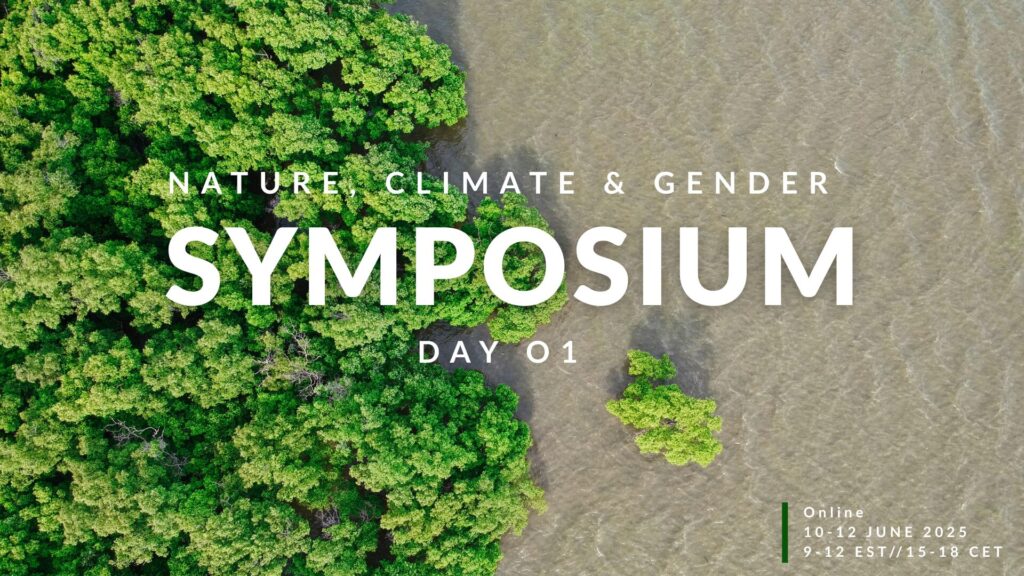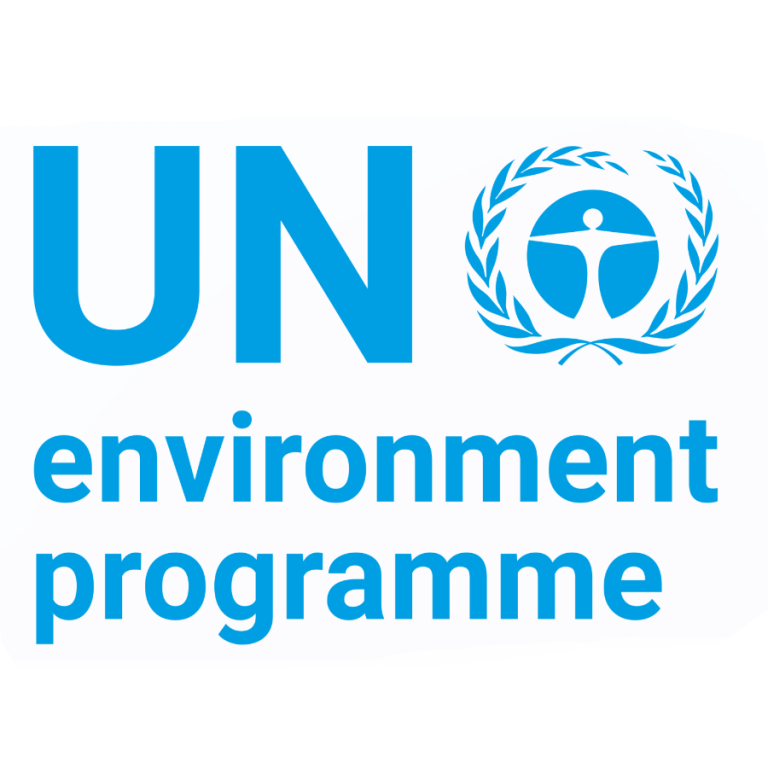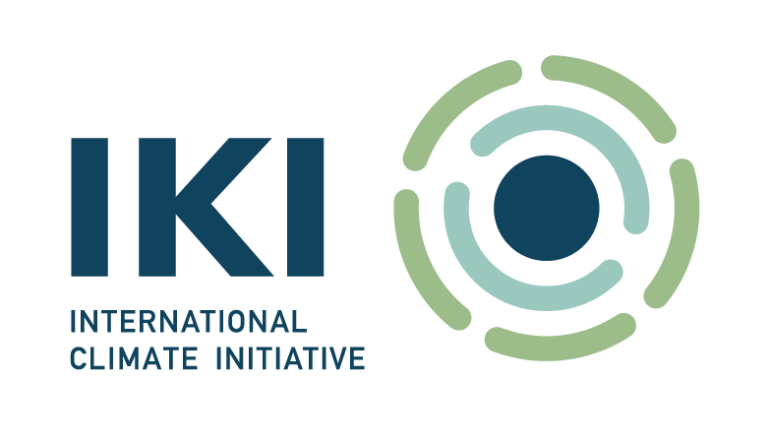Simposio Naturaleza, Clima y Género Día 1: Fundamentándose en la justicia y la acción

Opening Keynotes: Reframing Nature and Rights
Speakers:
- Verónica Ruiz (IUCN)
- Rose Washington (IUCN)
- Stewart Maginnis (IUCN)
- Lucy Mulenkei (Indigenous Information Network; – IIN Indigenous Women’s Biodiversity Network – IWBN; International Indigenous Forum on Biodiversity – IIFB)
The Nature, Climate and Gender Symposium 2025 opened with a compelling call to action: Nature-based Solutions (NbS) must centre both ecosystems and human rights. Keynote speakers emphasised that gender is not just a women’s issue, but a societal concern—one that includes men, women, youth, and elders.
Particular attention was given to the role of Indigenous Peoples, especially women, who have long contributed to environmental stewardship and policy processes. Speakers stressed the need to connect gender, community knowledge, and climate action to ensure lived experiences inform decision-making at every level.
Session 1: Beyond “Green” – A Justice-Based Vision for Climate and Nature
Speakers:
- Ali Raza Rizvi (IUCN)
- Sariaka Nantenaina (Capacity-Building for Communities (C4C) Madagascar)
- Viviana Figueroa (International Indigenous Forum on Biodiversity – IIFB)
- Barbara Nakangu (WWF)
- Maryruth Belsey Priebe (aXXelerate)
This session explored how climate responses must go beyond environmental goals to include equity, gender, and justice. Panellists criticised fragmented, siloed approaches and argued for integrated models that acknowledge the complex realities of climate impacts.
- Traditional and Indigenous knowledge, especially from women, remains underutilised in national policies despite global commitments. Participants highlighted how women and Indigenous communities are disproportionately affected by biodiversity loss and climate change, yet their insights are often excluded from solutions.
- Local-level implementation still lags behind global frameworks. In informal settlements, for instance, people focus on daily survival—often disconnected from policy agendas. The call was clear: design systems that reflect real community priorities, not just donor checklists.
- Donor practices were identified as a key challenge. Funding structures that separate gender, climate, and biodiversity work create unnecessary barriers. Speakers urged a shift toward flexible, locally-driven funding that fosters integrated, community-led action.
- Youth engagement was another strong theme, with examples like community science clubs combining traditional knowledge and science to nurture leadership and local resilience.
One powerful takeaway: urgency and justice are not in conflict. Rather, justice strengthens climate responses, and including women’s leadership from the start enhances both fairness and effectiveness.
Video: NbS Forets Guinéennes – Improving women’s leadership in the face of climate change
Video: Femmes Pro Forêts
Sesión 2: Presentación de proyectos: Clima, género y derechos humanos en acción
Oradores
- Carla Manjate (IUCN)
- Fabian Wiropranoto (su-re.co)
- Marie-Line Sarrazin (Equitas)
- Thandokuhle Zungu (Alexandra Water Warriors)
- Maryam Selah (Plan International)
- Daniel Alejandro Rodriguez (IUCN)
This session featured a range of practical, community-led initiatives that integrate climate resilience, gender equality, and human rights. Each speaker presented grounded experiences from their respective regions, demonstrating how inclusive approaches can lead to effective and sustainable solutions.
Fabian shared work from Indonesia that focused on agroforestry, biogas digesters, and climate field schools, all developed collaboratively with farmers and extension workers. Cultural and religious practices were embedded into the agroforestry work, reinforcing community ownership. A key future step involves generating economic data to support the case for community-led Ecosystem-based Adaptation (EbA).
Marie-Line presented the “Femmes pour les Forêts” project, which strengthens women’s leadership through a human rights-based approach. Using role-playing activities, young women developed local action plans on issues such as access to water, while also building solidarity and organising platforms for collective advocacy.
Thandokuhle described the SUNCASA project, which reclaims urban water spaces in flood-prone areas of Johannesburg, Kigali, and Dire Dawa. Through community art installations created with waste materials—part of the “River Creatures” series—youth and local artists raised awareness around biodiversity, urban resilience, and circular economies. Traditional knowledge and gender inclusion were core components of the initiative.
Maryam presented three interconnected projects—mangrove restoration, sustainable seaweed farming, and locally-led forest management—all supported by a “Gender Justice Journey” methodology. This approach involved households and communities in co-developing plans that address barriers at multiple levels. One outcome included women taking on new roles in local governance and shifting restrictive social norms.
Daniel Alejandro shared experiences from Ecuador, Guatemala, and Costa Rica, where ten EbA measures were implemented with integrated gender and human rights components. These included sustainable agriculture, seed banks, water and land management, and nature-based livelihoods such as beekeeping and bamboo production. Local governance structures intentionally included women, resulting in greater community ownership, improved resilience, and diversified incomes.
Across the board, speakers emphasised the importance of rights-based communication strategies that ensure all community members—particularly women—can voice their priorities and shape solutions. Involving both women and men helped shift not only household dynamics but also broader governance systems. Demonstrating impact and maintaining inclusive communication were highlighted as essential for sustaining momentum and influencing decision-making at higher levels.
Video: SUNCASA – Gender & Social Inclusion Catalyzing Urban Climate Adaptation in Africa
Explore the full recording and powerpoint slides of the sessions for deeper insights and actionable recommendations:
Nature, Climate & Gender Symposium (English) – Day 1
Symposium Nature, Climat et Genre (français) – Jour 1
Simposio Naturaleza, Clima y Género (español) – Día 1
Day 1 powerpoint slides (English)




